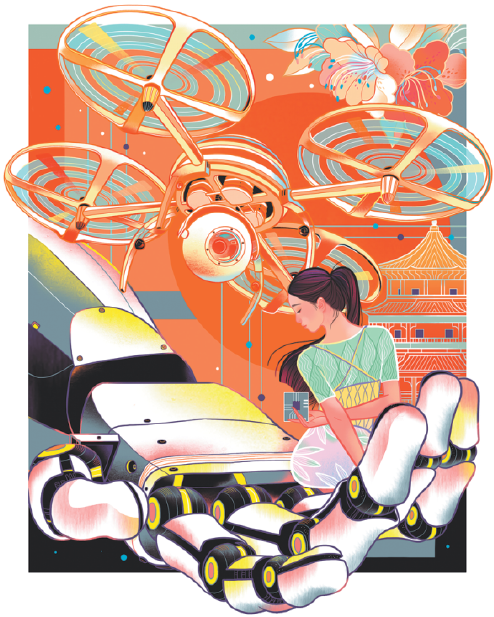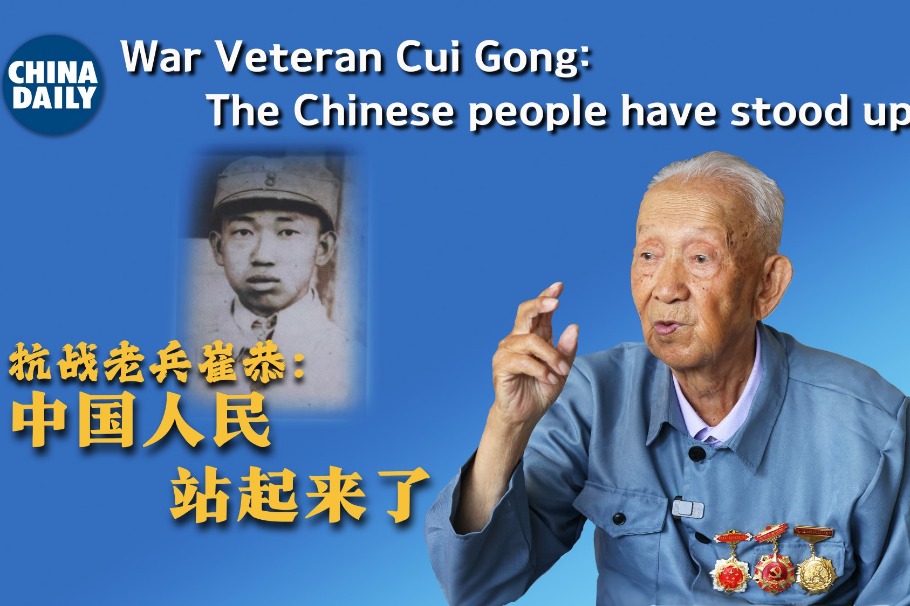Why China's AI initiative is critically important


At the World Artificial Intelligence Conference, held in Shanghai from July 26 to 28, Premier Li Qiang proposed that an international body, tentatively named "World Artificial Intelligence Cooperation Organization", be established to guide and regulate the global development and application of artificial intelligence. This shows China is committed to ensuring AI is regulated globally to not only ensure fair competition, but also to reshape AI's development trajectory in a way that serves humankind.
Li criticized the fragmented global AI regime and warned against the risk of a few countries or companies monopolizing AI's development and benefits. By hosting the conference in Shanghai and inviting more than 40 countries and international organizations, China has shown what multilateral AI governance leadership should be like.
Importantly, China has packaged its proposal with a 13-point action plan and a commitment to open-source cooperation, infrastructure-building and inclusive access — especially tailored to BRICS and Global South countries, which were excluded from global rule-setting in the past.
China is moving from being an AI actor to an AI architect, aiming to realize its AI governance vision "through consultation, co-construction, and shared benefits" and turn it into a universal public good.
China's achievements in AI, led by companies such as DeepSeek, have increased dramatically. With the R1 model and open-source frameworks, Chinese firms have shown they have the capability to compete with US companies in specific domains, particularly in cost efficiency and regional influence.
The US has recently tightened export restrictions on AI chips and hardware. China has responded by, among other things, forming domestic partnerships between chip-makers and model developers to build a self-sufficient ecosystem, which may look like a defensive posture but, in reality, is a statement of strength.
With Washington pivoting toward "freedom-driven" AI and deregulation under the framework of "Winning the Race: America's AI Action Plan", China offers an alternative governance vision, a vision rooted in multilateral norms, government-led coordination and inclusion of all, including marginalized countries.
This initiative aligns with earlier Chinese initiatives, such as the Global Civilization Initiative and the Global Development Initiative. China's proposal at the WAIC is a counterweight to the US' framework for AI development. Instead of Washington and high-tech giants setting the norms, China proposed that an international body shoulder the responsibility of guiding and regulating AI development.
If China's open-source, inclusive AI development model wins wider endorsement, the US may have to rethink its tech-first, deregulation-driven posture on AI, and US policymakers and firms could be compelled to engage in more inclusive and multilateral endeavors to stay influential.
A global AI governance body will set the technical standards, certification regimes, safety frameworks and norms that companies in the US and other Western countries will need to adhere to. If participation becomes a de facto requirement for accessing the market, the US could find itself playing defensive in standard- and norm-setting.
This shift could turn the AI race from one about technological leadership to a contest of visions and values: whether AI should be regulated by multiple government-led mechanisms or by a decentralized, market-centric US-led coalition. The outcome may define which governance model global actors, including the European Union and India, prefer.
China's proposal shows AI governance at present is fragmented because different governments have set different rules for AI, and AI companies are following their own rules. A global body could harmonize the rules, resolve the conflicts over data flow, safety testing, ethics, transparency and equitable access — fields for which no unified set of rules exists.
By including developing countries in its AI governance plan, China is trying to meet an important unmet demand. Many governments lack the capability of ensuring complete AI safely. A global body could help them do so.
Whether the China-proposed multilateral AI governing body and the US-led Western organization such as the Paris AI Action Summit's initiative early this year, converge or will compete with each other will decide whether their AI governance models will align or remain fragmented. China's proposal includes AI safety mechanisms in a 13-point plan (including dialogue on technology under the United Nations' framework). This could help set up internationally accepted guardrails to eliminate misinformation and bias, remove risks, and ensure autonomy, all overdue measures in global AI governance.
The true strength of China's proposal lies in its effective implementation. Will China's proposal help set meaningful standards, and strengthen enforcement and capacity-building, or will it remain primarily symbolic?
The announcement of a global AI governance body, backed by action plans and open-source commitment, marks a pivotal moment — not just in technological competition but also in institutional competition — which will determine how the AI era is governed. For China, the proposal signals its readiness to help shape global AI governance and anchor its leadership in multilateral diplomacy. For the US, it is both a challenge and an opportunity to change its approach beyond competition, re-engage in global governance, and offer an alternative model rooted in openness and shared values.
Ultimately the future of AI governance may rest less on whose CPUs or GPUs are fastest and more on whose values and institutions shape the rules of the machine.
The author is a non-resident fellow at the Quincy Institute and senior lecturer in the Asian/Pacific Studies Institute at Duke University.
The views don't necessarily reflect those of China Daily.
If you have a specific expertise, or would like to share your thought about our stories, then send us your writings at opinion@chinadaily.com.cn, and comment@chinadaily.com.cn.
































